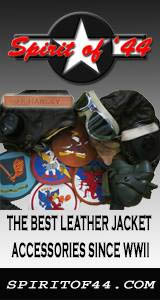Junkers Ju 188
Design & Development
The prototype Ju 88B V1, D-AUVS, flew for the first time with the 801A/B engines in early 1940. The fuselage was
identical to the Ju 88 A-1, which presented a problem: with the extra power, 1,560 PS (1,150 kW, 1,540 hp), the
design could now carry considerably more load than the small bomb bay could fit. An additional external shackle
was then added to each wing well outside the engines, although using the rack would seriously hamper
performance.
During the summer, a pre-production run of 10 Ju 88 B-0 based on the pre-production Ju 88 A-4 airframes were
delivered. The A-4 used a longer wing for better altitude performance, just over 20 m (70 ft) as opposed to the
18 m (65 ft 10½ in) span of the earlier A-series, but attention to streamlining and new "pointy" wing tips kept
drag to about what it was earlier. The airframe changes moved the center of gravity slightly, so the glazed
"cockpit" area was made slightly longer to re-balance the aircraft, while also offering better visibility for
other members of the crew.
Service tests were all successful, and the pilots generally lauded the new cockpit design. However, the RLM still
remained unconvinced that the small improvement in performance over the existing A-5's and future A-4's was
worth investing time in. Instead, the pre-production models were modified as long-range reconnaissance aircraft
by removing the guns, bombsights and external bomb shackles, and fitting fuel tanks into the bomb bay.
Several of the airframes were retained by Junkers for further development. One of these was fitted with the
slightly updated 801L engines and a small power-operated turret on the extreme top of the cockpit mounting a
13 mm (.51 in) MG 131 machine gun.

A Ju 188A-3 of Kampfgeschwader 6 being loaded with bombs.
Western Europe, 1944
[Source: Bundesarchiv]
By 1942, it was becoming clear that the Ju 288 was not going to be ready any time soon, and at the same time the
Ju 88's were increasingly at the mercy of a rapidly-improving RAF and Soviet VVS. The RLM finally decided that
even the small gains in performance in the Ju 88B were worth considering, and asked Junkers for a series of
upgrades as the Ju 188.
The sole Ju 88 E-0 was modified with several additional guns, another 13 mm (.51 in) MG 131 firing rearward just
below the turret, one firing forward through the nose, and the twinned 7.92 mm (.312 in) MG 81Z machine gun in
the integrated ventral Bola gondola firing rearward. Two other airframes had their engines and outer wings
removed to act as testbeds for water ditching, as it was planned to use the Ju 188 in long overwater flights
against British shipping. A second Ju 188 test airframe was also built up from another Ju 88 A-4, this one
including a larger, more trapezoidal vertical tail surface set to provide more directional control at higher
altitudes, a feature also used on future Ju 88 models, such as the Ju 88G night fighters. Originally known
as Ju 88 V44, this airframe was later designated Ju 188 V1.
In October 1942, the program was given the go-ahead to start planning for production. A second prototype was
delivered in January, which moved the outer bomb shackles to a position inboard of the engines. Both started
testing the dive bombing system installed in the 88 A-4 in February. The RLM then asked for another change,
allowing the aircraft to mount either the BMW 801 or Jumo 213 engines as a complete Kraftei, or "power egg"
unitized engine installation, that would simply be bolted on and hooked up. Concerns about the Jumo 213, now
years overdue, were offset by this engine's better altitude performance, so it made sense to delay the
aircraft slightly if that meant it could switch to the 213 as soon as they became available. The second Ju
188 V1 prototype was flown in at Rechlin between September and November 1943.

A Ju 188A-3 of Kampfgeschwader 6 being loaded with bombs.
Western Europe, 1944
[Source: Bundesarchiv]
Sources:
Gunston, Bill - The Encyclodepia of the Worlds Combat aircraft, 1976, Chartwell Books, Inc., New York
Brown, Eric, Captain - Wings of the Luftwaffe , 1979, Airlife Publishing Ltd., Shrewsbury
, 1979, Airlife Publishing Ltd., Shrewsbury
Gunston, Bill & Wood, Tony - Hitler's Luftwaffe , 1977, Salamander
Books Ltd., London
, 1977, Salamander
Books Ltd., London
Donald, David - The Complete Encyclopedia Of World Aircraft, 1997, Brown Packaging Books Ltd., London
Wikipedia - Junkers Ju 188
Gunston, Bill - The Encyclodepia of the Worlds Combat aircraft, 1976, Chartwell Books, Inc., New York
Brown, Eric, Captain - Wings of the Luftwaffe
Gunston, Bill & Wood, Tony - Hitler's Luftwaffe
Donald, David - The Complete Encyclopedia Of World Aircraft, 1997, Brown Packaging Books Ltd., London
Wikipedia - Junkers Ju 188






